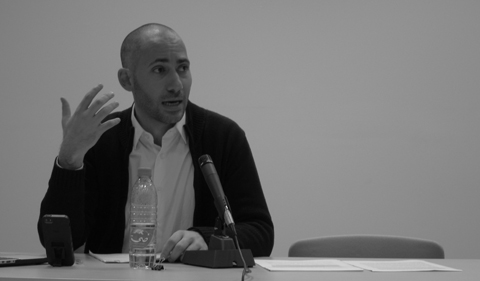The Lebanese Center for Policy Studies (LCPS) interviewed Dr. Ziad Abu-Rish, Assistant Professor of History at Ohio University, about the role of “the state, or lack thereof,” in the contemporary history of Lebanon—looking back to the first 15 years after independence from France in 1943, a period that predates the country’s 15-year civil war, which began in 1975.
Located on the eastern Mediterranean, and bordered by Syria to the north and east and Israel/Palestine to the south, Lebanon has typically been studied through the lenses of sectarianism, war, refugee flows, occupation and international intrigue. By contrast, Abu-Rish’s research helps to paint a picture of a newly independent state whose officials and citizens were active participants in debates about the nature and future of its institutions. He is currently working on a book manuscript that narrates and analyzes the political, social, and cultural history of state formation and economic development during the first decade and a half of independence.
“Reading primary sources from the early independence period, whether they are local newspapers, personal memoirs, or foreign reports, I am always taken aback by how invested elites and the broader population of Lebanon were in the process of post-colonial state building,” he says in the interview titled “Then and Now: Lebanese State Institutions During the Early Years of Independence.”
“I think it is important to understand that Lebanese citizens living in the first decade of independence could not have predicted the civil war was coming,” he says.
“There was a time when community activists, political groups, and certain state elites fundamentally believed in a project of state building; one that was responsive to the needs of a majority of the population. This was not because of the absence of corrupt, rent-seeking, and politically exploitative state officials and local elites—far from it. After all, those dynamics were not that different from any other early post-colonial state. So the question is really one of the necessary conditions and choices concerning successful state building, rather than an outright impossibility of such a project by mere virtue of the fact that we are talking about Lebanon.”
LCPS asked Abu-Rish if Lebanon’s early attempts at governing were “mostly a product of French mandate Lebanon or was the Lebanese state at that time capable of single-handedly establishing and sustaining strong and reliable institutions that adequately delivered services to citizens? In other words, is the failure/weakness of Lebanese institutions today mostly a result of the civil war, or have government institutions never had strong roles/adequate capacities in independent Lebanon?”
“I would argue,” replied Abu-Rish, “—drawing on the work of some key scholars (e.g., Reinoud Leenders)—that the ‘weakness’ of state institutions today has much more to do with the dynamics of the civil war and the post-war settlement than any inherent institutional capacity in Lebanon.”
While some of its neighbors ultimately featured state-managed economic development, Lebanon experienced a more open, laissez-faire economic development, Abu-Rish points out. That different path of development, he notes, was the result of history, contingency, and strategy rather than something intrinsic to Lebanon as a country or society.
‘Now that we have our independence, what are we going to do with it?’
“Turning to the primary sources available from the period, one regularly comes across a broad array of political groups, social movements, public events, and all sorts of publications that directly address the issue of state-funded and state-operated services—or the lack thereof. If anything, the early independence period can be described as one in which formal and informal politics focused on one main question: ‘Now that we have our independence, what are we going to do with it?’ A central axis around which responses to that question pivoted was that of the role of the state in providing certain services, whether they be public utilities such as water and electricity or other services such as education, healthcare, and consumer protection.”
LCPS asked Abu-Rish to compare that with present-day levels of public engagement. “I am not sure how productive that would be given a variety of theoretical and methodological factors,” he responded. “That being said, it is clear that today there is a significant degree of pessimism and cynicism vis-à-vis the government and the role of state institutions in bringing about meaningful change in the lives of everyday citizens. In this regard, I would simply refer back to my earlier point about retrospective claims. Public engagement in Lebanon during the early independence period was premised on a belief in both the potential transformative role of state institutions as well as the normativity of such a role when it came to questions of public services and economic development. One need only look at the example of the public campaign against the Beirut Electricity Company in the early 1950s. The campaign called on the government to further regulate consumer prices—let alone nationalize the electricity sector—as the best means of protecting both the national interests of the Lebanese state and the everyday well being of its citizens.”
Abu-Rish noted that “these are really excellent questions that demonstrate the need to move beyond traditional political and economic narratives of history in Lebanon.”
Read the entire interview with the Lebanese Center for Policy Studies (LCPS).
Abu-Rish also gave a research lecture in the spring at the American University of Beirut, hosted by their Center for Arab and Middle Eastern Studies (CAMES). He is spending the 2015 summer conducting research at archives in Lebanon and the United Kingdom.
“LCPS has established itself as a leader in bridging critical research and policymaking in Lebanon, so it was quite the honor to be asked by them to speak about my Lebanon research,” he said, noting that it’s rare for historians to be sought out by organizations that are otherwise focused on the present.


















Comments